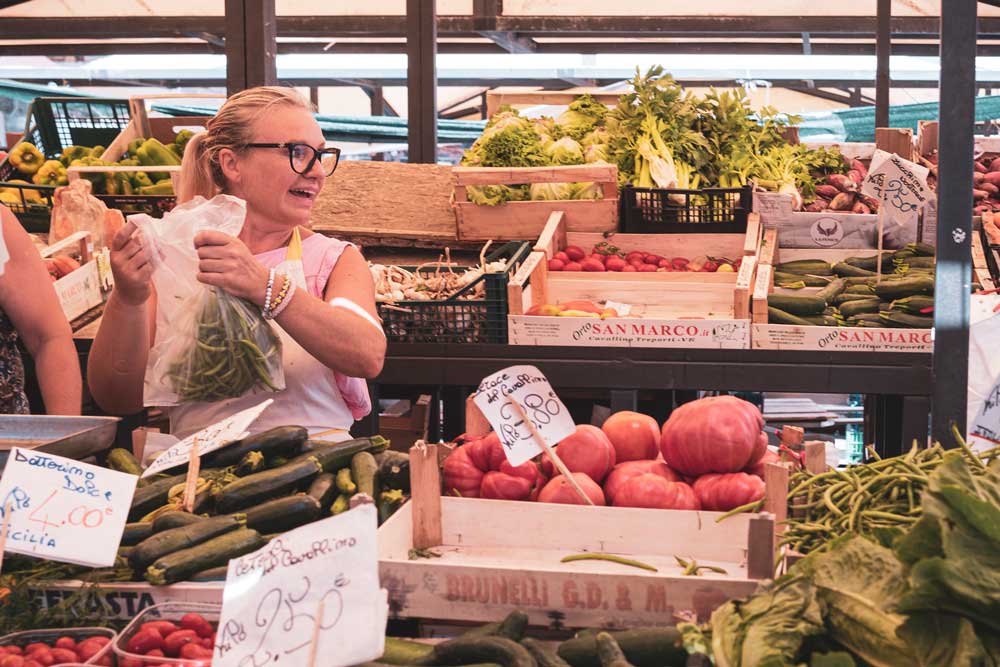The resistant restaurateur (by Luca Farinotti)
Versilia, early in the morning.
I walk along the beach. The sun is already high in the sky. I’m afraid of the darkness. And even more of the water. Marina picks up a small seashell.
“Look, this is a bean clam!”.
“How small they are,” I observe, mesmerized. “Now I see why it’s so difficult to clean them!”
I recall all the times that in restaurants I’ve complained detestably about a little bit of sand in my bean clam soup.
I feel guilty for that, and I wish I could turn back time to wipe away the sense of guilt for all the times that, wholly unaware of how much passion (first) and effort (second) it takes to clean those large handfuls of the shucked clams I was served with. I’ve trampled poetry underfoot: “Waiter, there’s a problem with my soup: the sand. Too much sand.”
I wish I could pay tribute to the sea, to the fisherman, to the chef, rewarding them with their rightful τιμη.
How many times I demanded mine! Furious with the arrogant complaints of my inexpert customers (“We spent 15 euro on three measly anchovies, how shameful!” Or even, “20 euro for three slices of prosciutto, it’s outrageous!”).
I wish I had yelled out that what the unwitting customer calls a “theft”, for me, most of the time, is actually a gift of love. I wish I had gripped by the collar and yanked anyone who had cruelly mocked my work, assessing ingredients on the basis of his own limited experience.
Then, I wish I had seized his arm, dragged him to the nearest truck stop, pointed at the sandwich showcase and yelled in his ear: “THESE are expensive! This industrial, defrosted bread, this prosciutto made God knows where! Six euro for this, THAT is a theft!
I claim my τιμη!”
“What you call three measly anchovies in oil are actually Cantabrian Anchovies, fished only from April to May and selected with the greatest care during my trips to the North of Spain, thinking of nothing but YOU!
I was trying to picture and have a foretaste of your happiness – the only real reason for my work – in tasting that one-of-a-kind product.
I would like to claim my honour, but the feeling of shame silences me, since I know that my real τιμη depends on how I’ll be able to remain faithful, with all my soul, to my own ideals, in order to be a resistant populariser.
All the rest is wasted time.
Ignorance breeds close-mindedness, wickedness and hideousness. Suddenly, I remember all the times when, stumbling across something I didn’t know anything about, I shamelessly, incompetently, harshly and roughly judged it.
It’s easy to dispense captivating sermons, playing the typical educated restaurateur and the role of a preceptor. But it’s far less easy to maintain that constant humility which distinguishes someone who considers himself – since that’s the way it should be – a beginner.
Clam soup is a typical Versilian dish, simple but so delicate and rich in flavour that, in my opinion, it is the emblem of the Resistant Restaurateur, namely, the humble and virtuous restaurateur, who is a purveyor of beauty.
The Resistant Restaurateur’s 5 commandments
- The Resistant Restaurateur must have a vocation for his craft, regarding it as his mission. He must preserve his craft and do it justice every single day, as the guardian and preserver of his own ethical rules, both the technical and the procedural ones, as well as of the essence of the craft itself.
- The Resistant Restaurateur must be highly educated. He has to know the origin and the specifications of each product on the market.
- The Resistant Restaurateur must be courageous; he should be sponsored exclusively by virtuous suppliers he has chosen himself. (The Michelin-starred chefs who become corrupted by choosing brands whose usage in their own restaurants is not openly declared, are to be condemned and boycotted).
- The Resistant Restaurateur must be a combative person: he makes the stereotypical junk-food-sponsored cover boy, his mortal enemy.
- The Resistant Restaurateur must be a real Master to his pupils and a virtuous populariser towards his customers, without exception. As a Master, he should practice humility and keep his mind open, learning as if he was an eternal beginner and teaching people by example.








